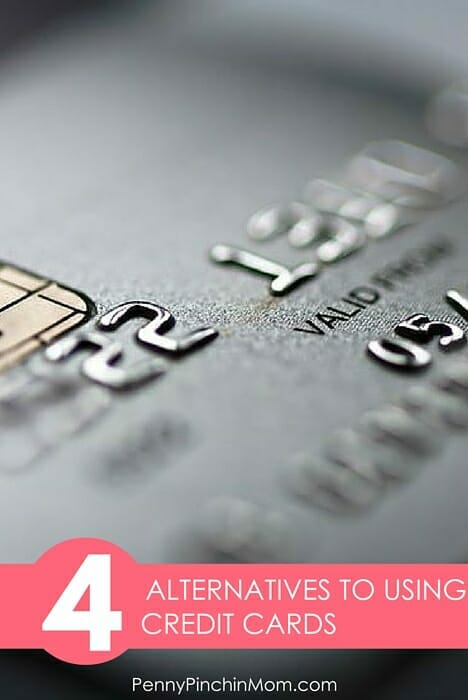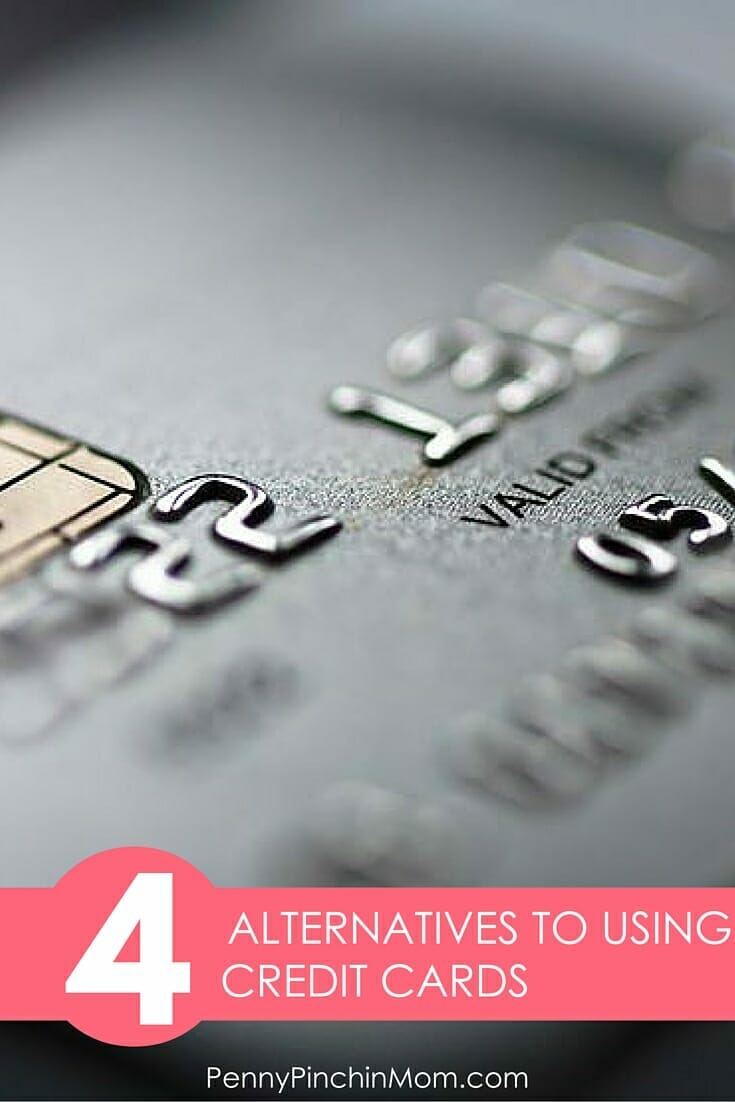
There is no doubt that credit cards can be an enormous drain on your family’s finances as reports consistently show that the majority of Americans pay credit card interest each month. And as Tracie pointed out recently, even those who use a reward card can have very little to gain and so much to lose. But at the same time, credit cards are still a method of payment that can offer convenience and security that is hard to replicate with cash or checks.
For instance, it can be difficult to rent a car or reserve a hotel room without a credit card, and lost cash is irreplaceable. At the same time, credit cards offer chargeback protections to prevent unscrupulous merchants from taking your money without delivering. Finally, the responsible use of credit cards can improve your credit score which is important for many reasons. Fortunately, there are several other methods of payment available, other than traditional credit cards, that can offer some of these valuable features without the possibility of incurring debt. So let’s examine the advantages and drawbacks of some of these popular alternatives
1. Debit cards. Debit cards look and feel like credit cards, but cardholders cannot incur debt (so long as they do not enable overdraft protection.) On the downside, debit cards do not offer rental car insurance or chargeback protection. And if you do pay for a hotel room or a car rental with one, they will put a hold on hundreds of dollars in your checking account.
2. Pre-paid cards. These products represent an emerging new field that has attracted the interest of some of the major banks. These cards can be loaded with cash from your bank account, from ATMs, or from reload cards purchased at retailers such as supermarkets and office supply stores. So in effect, cards work like debit cards, but they don’t require a bank account. But like credit cards, some offer a range of added services.
For example, the American Express Prepaid card offers purchase protection and roadside assistance. This card has no monthly fees and it even allows one ATM withdrawal each month without a fee. Furthermore, this product has no foreign transaction fees, so it is ideal for travel use. On the other hand, there are some prepaid products to avoid that charge monthly fees and reload fees.
3. Charge cards. Charge cards work exactly like credit cards, but with one key difference: You can’t carry a balance. These products offer the same rental car insurance, chargeback protections, and other features of credit cards, but cardholders are required to pay their entire balance in full and on time, each month. Yet at the same time, cardholders are essentially being extended credit and can certainly spend more money than they have, so these cards should also be avoided by those who have sworn off credit cards.
4. Secured cards. Most people think of secured cards as high-fee products targeted at people with poor credit. While this is often true, many reputable card issuers offer products like the Capital One Secured card that offer low-fees. I like to think of secured cards as a hybrid between a debit and a credit card. Cardholders must first make a security deposit and like a debit card, most secured cards do not allow customers to spend more than they have in their account. Yet like a credit card, payment history is reported to the major credit bureaus and purchases are eligible for the same federal protections against fraud. The downside is that cardholders must still pay their entire statement balance in full, each month, or they will incur interest just like a credit card.
It can be hard to resist the temptation to use a credit card, but it is possible. By exploring some of the other secure and convenient payment options, parents can realize the convenience and security of credit cards without even succumbing to the perils of credit card debt.
Jason Steele is a freelance journalist who writes about credit issues and travel for CreditCardForum and several other leading personal finance sites.
